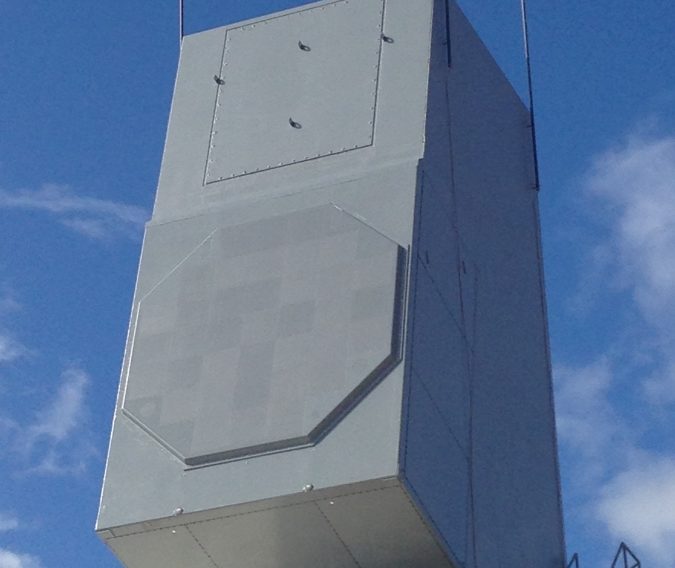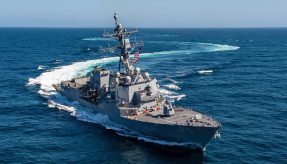
Raytheon’s AN/SPY-6(V) Air and Missile Defence Radar has successfully acquired and tracked a ballistic missile test target during its second live-target flight test at the U.S. Navy’s Pacific Missile Range Facility in Kauai, Hawaii.
This was a more complex, threat-representative ballistic missile target than those used previously, intended to challenge the detection and tracking capabilities of the new radar. AN/SPY-6 acquired and maintained the long-range missile target from launch to flight.
“We are continuing to stress this radar by increasing the range and complexity of the targets and demonstrating the radar is meeting its performance requirements,” said Navy Captain Seiko Okano, Major Program Manager for Above Water Sensors. “AN/SPY-6 is the nation’s most advanced radar and will be the cornerstone of the U.S. Navy’s surface combatants for many decades.”
This is the most recent in a series of successes for AN/SPY-6, following tracking of the first ballistic missile target in March 2017. In preparation for that milestone, the radar was tested against targets of increasing complexity, including integrated air and missile defence targets of opportunity, satellites and aircraft.
AN/SPY-6(V) is the first of its kind; a scalable radar, built with Radar Modular Assemblies (RMA) – radar building blocks essentially. Measuring an approximate 2′ x 2′ x 2′, each RMA is a standalone radar that can be combined to form any size of aperture, from a single RMA to configurations larger than those currently fielded.
Having achieved ‘Milestone C’ ahead of schedule, the programme remains on track for delivery to the first DDG 51 Flight III destroyer. AN/SPY-6(V) transitioned to ‘Low Rate Initial Production’ following a contract award for the first three ship sets in May.
If you would like to join our community and read more articles like this then please click here.
Air and Missile Defence Radar AN/SPY-6(V) Raytheon U.S. Navy







